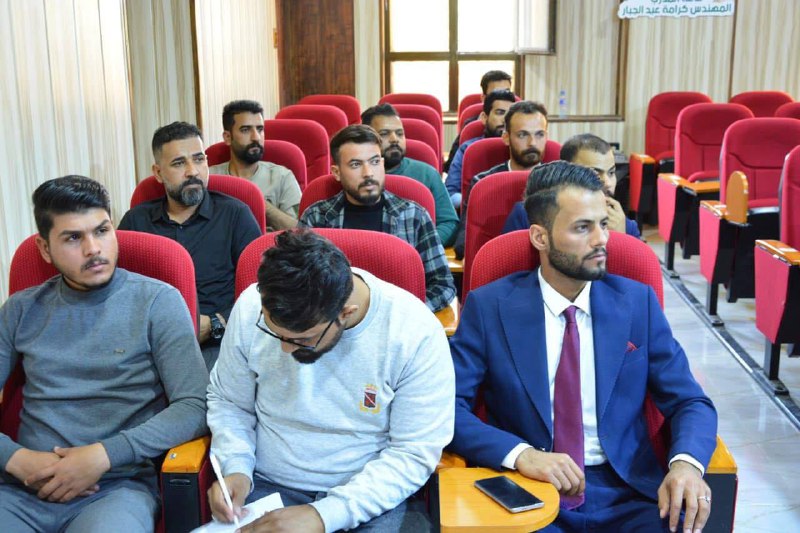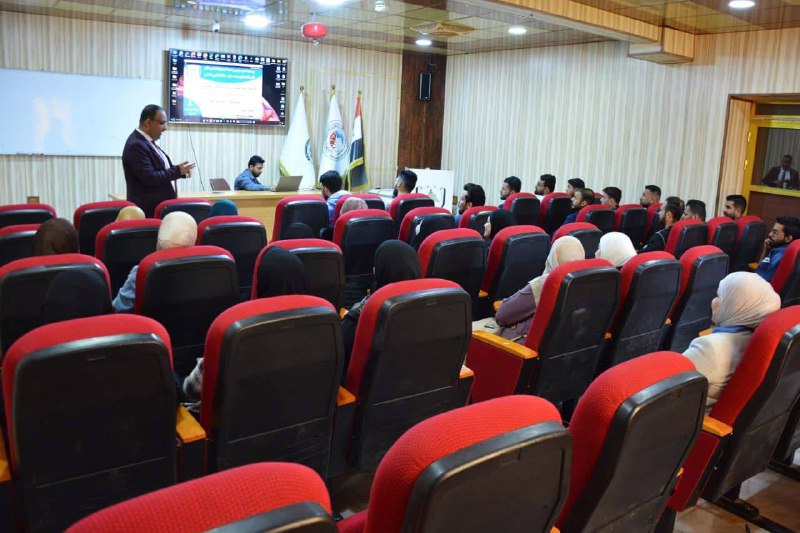.jpg)
Continuing Education Division, in cooperation with College of Industrial Management for Oil and Gas at Basra University for Oil and Gas, organized a training course entitled "Etiquette and Functional Protocol Skills" for newly appointed employees as part of their development program and to improve their level and capabilities in their job work. The course held on Sunday, 12/8/2024.
The Administrative Assistant of the College Gas, Dr. Haider Ali Al-Asadi, lectured in it. Al-Asadi explained that functional etiquette skills were a set of good literary and ethical alternatives, i.e. the behavior that they must deal with permanently in their work. those skills represent a network of rules that control their behavior and social and official interactions. Dr Haider added that the art of etiquette reflected the cultural standards, general health rules, and the rules of the different groups to which they belong. Regarding the importance of functional etiquette in the workplace, the lecturer explained that the functional etiquette skills allow to know how to behave appropriately in a specific place, which made comfort and harmony more.
The most important skills in etiquette and job protocol were reviewed, including: formal dress and the necessity of wearing formal clothes that suit the nature of the work and respecting the sanctity of the university, and maintaining the cleanliness of the office, which had negative psychological effects on the individual's personality, as well as maintaining professionalism during breaks, and as a general rule in communication skills, avoid joking and mockery during breaks, as that could make colleagues feel bad, which might affect the ethics of job dealings.
He added, “The employee must adhere to his appointments, as adhering to appointments is a large part of the art of etiquette in job work. When you are invited to a meeting, arrive at the meeting place and be ready to participate and do not leave the place halfway through the meeting.” He also explained the etiquette of communicating with the official in reality or through correspondence and communications, and the employee must use kind phrases that indicate respect and reverence for the higher official.
The lecturer recommended the necessity of maintaining adaptation by the employee being flexible and ready to deal with developments and challenges in the work environment, and teaching how to adapt to different circumstances and deal with them positively. Al-Asadi noted, “job etiquette is a fundamental element of professional success and excellence in the work environment. It helps establish formal relationships, and thus becomes good, and satisfies colleagues, superiors and clients. Job etiquette helps demonstrate discipline and personal organization. When an individual has job etiquette skills, the individual appears professional in his success and is able to manage his time and organize his work effectively. We must realize that job etiquette is not just a list of instructions and instructions, but rather an application for dealing with superiors, subordinates and auditors. Applying job etiquette enhances the chances of success and professional development, and contributes to building strong and sustainable relationships in the field of work.”
At the end of the course, the lecturer listened to the participants’ interventions and questions

